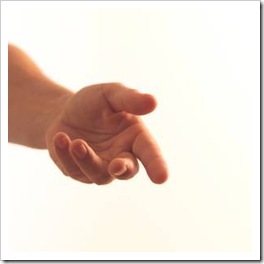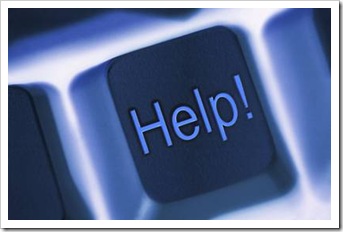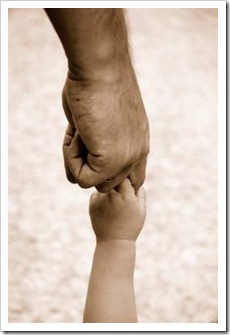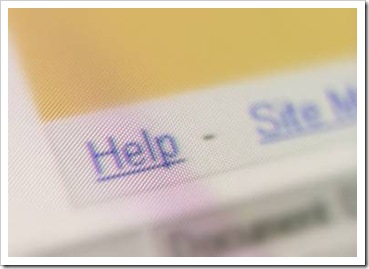This week, I got a question from one of my readers. I am posting the answer here because I think many people should read it.
Opposition Defiance Disorder (ODD) is another name people who like labels use when they need a budget for helping children. Someone has worked very hard and probably spent many dollars to research kids and teens (they say ODD can start as early as 1-3 years of age) and come up with a nice label. Since ADHD worked so well, ODD should work quite well too. Labels are a good way to attract funds, but I am not sure they are good to make things better.
There, I am done venting. Enough sarcasm. Let’s get serious about ODD.
Similarly to what I have said in my article on “The ADHD Myth” (which I recommend that you read), we all probably suffer from ODD at some stage in our lives and perhaps more than once. We suffer from depression, we suffer from ADHD, we suffer from ADD, but I think that “knowing” we suffer from something only makes it worse.

For your understanding of what we are talking about, here is one of the definitions of ODD (others are very similar):
“ODD is a psychiatric disorder that is characterized by two different sets of problems. These are aggressiveness and a tendency to purposefully bother and irritate others. It is often the reason that people seek treatment. When ODD is present with ADHD, depression, tourette’s, anxiety disorders, or other neuropsychiatric disorders, it makes life with that child far more difficult. For Example, ADHD plus ODD is much worse than ADHD alone, often enough to make people seek treatment. The criteria for ODD are:
A pattern of negativistic, hostile, and defiant behavior lasting at least six months during which four or more of the following are present [some places are less strict and say you need to have 5 or more of the behaviors]:
- Often loses temper
- Often argues with adults
- Often actively defies or refuses to comply with adults’ requests or rules (e.g. refuses to complete work)
- Often deliberately annoys people (e.g. flicks stationary at staff or pupils)
- Often blames others for his or her mistakes or misbehavior
- Often touchy or easily annoyed by others
- Often angry and resentful
- Often spiteful and vindictive
Now let me tell you what I think.
All the definitions here can just as well describe a frustrated, frightened kid who just does not understand how the world works. There is no one to blame – not his parents, not his teachers and not his doctors – because they all do the best they can. At the same time, we can only ask them to help him learn this.
- If the world does not work the way you expect it to work and you do not have the skills to accept it with love, you lose your temper. All of my clients – kids and grown ups alike – come to coaching in order to learn to control their mind, their feelings, their attitude and their action. They all have ODD before they start coaching and all of them are “cured” when they finish. Was it a malfunction of the brain or a malfunction of our education? (Bear with me, Special Education professionals always complain about the malfunction of the education system).
- If you feel frustrated, judged, helpless and mistreated you argue. Arguments are caused by frustration. No one argues when they get what they need and want. Parents and teachers are only human and they do not always know what kids’ need or want. They tend to think that “all kids think and want the same things”, when in fact kids are unique and have different needs and wants. Therefore, parenting is often done by trial and error. What works for one kid does not necessarily work for their brother, sister or classmate. Kids are born into a position of helplessness – they are small (older siblings are bigger), unable (to express themselves properly), weak (cannot lift heavy things), short (cannot get to the top of the counter) and they need to deal with lots of frustration, much more than adults do. I suggest we practice some patience. Frustration is not another name to ODD.
- Following rules requires rules to be set. Most people participating in my parenting program find that their definition of rules makes it very hard for their kids to follow them. For many adults, rules are set in stone and must be followed (blindly obeyed, really). For kids, rules help them function in “The Safety Zone”. They help kids feel safe making decisions, making mistakes or just having fun. Kids have free spirits and you can create many problems that will be wrongly diagnosed with ADD, ADHD or ODD just by making their environment too strict. Everyone was emphasizing obedience rather than freedom and safety.
- The word “deliberately” will not stand in any court. All humans have feelings. We feel hurt, we feel angry, we feel disappointed and we feel neglected. Everything we do, we do because we believe we will benefit from it. Kids and adults alike do things they believe will make them feel better, even for a few seconds. Even criminals do “bad things” because they think they will benefit from them at least for a short while. Hurting others for the sake of hurting others does not really exist. Every person hurting someone gets some psychological benefit from it.
“No one can annoy you without your consent”
– Ronit Baras - Blaming others is a learnt behavior. We only blame others when we find it too hard to take responsibility. We blame when it is too heavy. Blaming is part of the mentality of a victim. Some kids are victims at short stages of their life and they carry this identity with them years later. This could be started by a fight at school with a popular kid in grade 2 and can trigger blaming whenever the kids feels judged. Some kids use blame as a defense mechanism because they are blamed themselves for every small thing and they believe this is acceptable behavior. All my clients go through the session about blaming and justifying and, based on the above definition, they all have ODD (when I am upset, I have ODD too).
 I am touchy every month before my period. I am touchy when I see a sad movie. I am touchy when I try too hard and things do not work and I am touchy when I do not sleep well (when do not sleep enough I cry for no reason). I am touchy when I get hurt. I thought all this was just human, but maybe I am wrong and I have ODD (actually, I think I have both ODD and ADHD). Feeling touchy can be caused by so many objective reasons that can be easily removed. I think it is risky to label sensitivity in such a way.
I am touchy every month before my period. I am touchy when I see a sad movie. I am touchy when I try too hard and things do not work and I am touchy when I do not sleep well (when do not sleep enough I cry for no reason). I am touchy when I get hurt. I thought all this was just human, but maybe I am wrong and I have ODD (actually, I think I have both ODD and ADHD). Feeling touchy can be caused by so many objective reasons that can be easily removed. I think it is risky to label sensitivity in such a way.- Kids can be angry for reasons that grown ups cannot understand. Kids’ perception of the world is very naïve and they struggle to learn the patterns of the world around them, which is a big challenge. Sometimes, when something happens that does not match their expectations, they get angry. Is it not the same as losing your temper? They can feel like this because they are afraid, because they do not understand, because they cannot understand time or because they cannot predict the future. They are just normal! It does not make them clinically defiant.
- “Spiteful and vindictive” are distortions of angry or defensive reactions. Again, kids only do what they feel will benefit them. Have you never felt you wanted to hurt someone who hurt you? Being “spiteful” or “vindictive” can be an attempt to achieve some justice. In kids’ distorted perception, someone has hurt them and “paying them back” is going to make them feel better.

Dear Veronica,
Some people like labeling, because it takes away some of the guilt feelings that parents feel immediately when their kids do not behave exactly “the way they’re supposed to”. I personally do not like labels, because very often they stick to the kids and require a lot of effort to remove. In fact, I am in the business of removing labels and I can tell you that this part of the job is the most challenging. Sometimes, the labels stick so hard that the client would rather stop coaching than lose the label.
I admire your direct approach to finding ways to help him. I think your focus on “What do we do now?” is wonderful.
The bad news
Without knowing your son, I can tell you he has the UNHAPPY syndrome. UNHAPPY is similar to ADHD, it is similar to ADD and it is similar to ODD. When kids are UNHAPPY with something, this influences every part of their life and makes them do “bad” things. Then, the people around them give them negative feedback, which only makes them more UNHAPPY. It’s a cycle.
The good News
UNHAPPY kids can be treated by changing their perception of life.

Most likely, your son’s behavior is a cry for help. Every time he exhibits one, two, four or five of the behaviors described above, he is saying, “I do not understand you. You are not behaving the way I expect you to. I am confused and I can’t find a good way to explain it to you. You do not understand me. I never meant for it to get out of control, but what I mean and what happens are not the same. I thought that people should treat each other nicely but they don’t. I thought there was justice, but there isn’t. I need help! Mom, please help me!”
Whenever children behave in such a way, this is their childish way to ask for help. If you treat it that way, it will take a big load of your shoulders. Some kids learn the rules of living from “the air”, but others need translation.
For you to help your son, you need to answer the following questions to yourself. The answers are your tools to help him:
- Is he good at something (school, sport, art, craft, gardening and so on)?
Many kids are good at unusual things. The expectation they will do well in all areas, particularly in numeracy and literacy, is not realistic. If you find what he likes, this is your first step to help him. If he is good at anything that seems irrelevant to his schooling, treat it as if it is relevant and make him feel it is important. If you are not sure what he loves doing, ask him, “If you had all the time in the world and you could do anything you wanted, without worrying what anyone might think, what would you do?” - Does he get a chance to do the things he likes?
For example, if he likes music, does he get the chance to listen or play music every day? Kids need to do the things they like doing every day. When they do the things they like, it makes them happy and their happiness chases the frustration away. Kids who practice what they love, excel in other areas of life. - Are there any adults he respects?
This can give you an indication that it is not your son’s problem but a challenge with particular adults’ attitude. If he is respectful to one person, even just one, find out what that person does that inspires this respect. - What is the ratio between positive and negative things you (and the other adults in his life) say to him each day?
Kids who are bombarded with negativity, become hostile. Blaming is their way of getting rid of some of that load. If your son blames others, he is probably feeling bad. Try not to blame him too much. Whenever there is a conflict, focus on what you want him to do in the future. If he lingers on what happens, change his focus by saying, “Let’s see what we can do about it”. If you use too many “Pink Elephants“, change your language to a positive language and ask his teachers to do the same. - How many times have you offered to help him when he was in trouble?
Kids want to know you will be there for them even when they make mistakes (which they will sometimes). The more you are with them or next to them, the fewer mistakes they will make. If your son is upset, ask, “What can I do to help you?” in the most supportive way you can. If he is too upset to talk, say, “I want you to know I am always here for you” (for inspiration, see “I will come” post and video and “The door is always open“). Make sure he knows that asking for your help will always be accepted.
I think the five tips above are a great start for a having a happy child. Often, using only one of them can change a family’s life.
Good luck!
Ronit
 I am touchy every month before my period. I am touchy when I see a sad movie. I am touchy when I try too hard and things do not work and I am touchy when I do not sleep well (when do not sleep enough I cry for no reason). I am touchy when I get hurt. I thought all this was just human, but maybe I am wrong and I have ODD (actually, I think I have both ODD and ADHD). Feeling touchy can be caused by so many objective reasons that can be easily removed. I think it is risky to label sensitivity in such a way.
I am touchy every month before my period. I am touchy when I see a sad movie. I am touchy when I try too hard and things do not work and I am touchy when I do not sleep well (when do not sleep enough I cry for no reason). I am touchy when I get hurt. I thought all this was just human, but maybe I am wrong and I have ODD (actually, I think I have both ODD and ADHD). Feeling touchy can be caused by so many objective reasons that can be easily removed. I think it is risky to label sensitivity in such a way.










